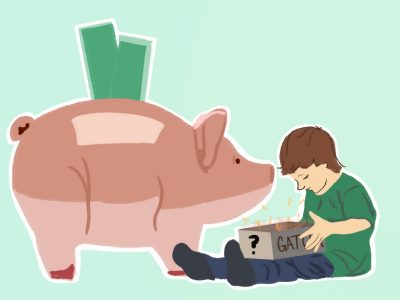In the past decade, a new genre of mobile games has exploded in Japan and the world at large: the “gacha” game. Named for real-life gachapon — coin-operated machines that dispense random capsule toys — gacha games are free to play and make money by allowing the player to roll for random in-game valuables.
Users typically get some free spins on the roulette, but the monetization model is simple: If players want the best prizes, they will have to pay real money for more tries.
This may not sound very profitable on paper, but that model underestimates the spending power of a dedicated subgroup of the gacha playerbase. Most players spend some money on spins, but retain a level of control.

It is a dedicated few who are so addicted they keep the whole enterprise afloat. Look no further than one man who spent an estimated $70,000 on gacha juggernaut “Fate/Grand Order,” according to The Wall Street Journal.
Make no mistake: This is exactly as cruel as it sounds.
One form of gacha was even outlawed by Japan’s Consumer Affairs Agency in 2012 for being too misleading about probability.
The odds of winning the best characters are slim, and most gacha games use characters from beloved video games or anime series to ensure fans will gamble for them. The aforementioned Fate franchise even includes a character named Gudako — a gambling addict who parodies its own user base.
By using examples such as Gudako and the fan-favorite phrase “gacha hell,” we can dismiss the argument that the buyer is to blame. The players know exactly what is going on and that it’s not healthy, but they keep going anyway.
Developers drain them of every last cent — or yen, as is often the case — and it’s often impossible to escape.
However, Fate is more than five years old at this point, which is practically an eternity in video game years. What does the future of gacha look like? For that, perhaps we should look to “Genshin Impact,” which released Sept. 28 of last year for mobile, PC and PS4 platforms to overwhelming success.
The platforms are an important distinction — most gacha games on the market are mobile-only, with repetitive 2D combat and barely animated cutscenes. Genshin — to its credit — is a vast, open-world action game, but it still uses the dangerous gacha monetization model.
In fact, one Genshin player reportedly spent $2,000 dollars in search of one character and immediately regretted it, according to an article in Polygon.
This new game sets a uniquely terrifying precedent. Gacha predecessors such as Fate are nakedly honest about the bottom line — with simple gameplay, there’s no pretense. They seem to taunt, “This is a shameless cash grab, so what?”
But Genshin offers lovingly crafted visuals and engaging gameplay. It also creates new characters rather than licensing them from an existing franchise. There’s something more sinister about making a fleshed-out console role-playing game and profaning it with gacha bloodsucking regardless.
Not that you can blame them. Genshin cost game developer miHoYo $100 million to produce, according to the South China Morning Post. Getting a moneyed portion of the playerbase addicted to gambling is a highly effective way to recoup such a loss — and the game did just that within two weeks of its release.
But these financial tactics also demonstrate how nothing is sacred. I don’t even play Genshin, and it still stings to see people online — some of them my friends — spend so much money gambling on pixels.
In that sense, the game acts as a constant little reminder of suffering. Whenever I see someone post about the cool new anime character they won in Genshin, I know they probably blew way too much of their disposable income — and they’re one of the lucky ones.
“Genshin Impact” is the perfect game for a global pandemic for all the wrong reasons. It doesn’t speak to or remedy our devastating isolation — instead, it mirrors the background of grief brought by COVID-19.
At Boston University, 125 students currently live in isolation, sick and alone. Almost everyone has lost a loved one to the virus or knows someone who has. The death toll of nearly 450,000 people in the United States is incomprehensible.
Our real world is too much to bear, so we escape into the fantasy world of Teyvat — in which the “Genshin Impact” game takes place — where the underlying pain comes from loss of money, not lives.





















































































































